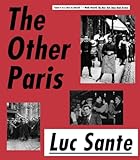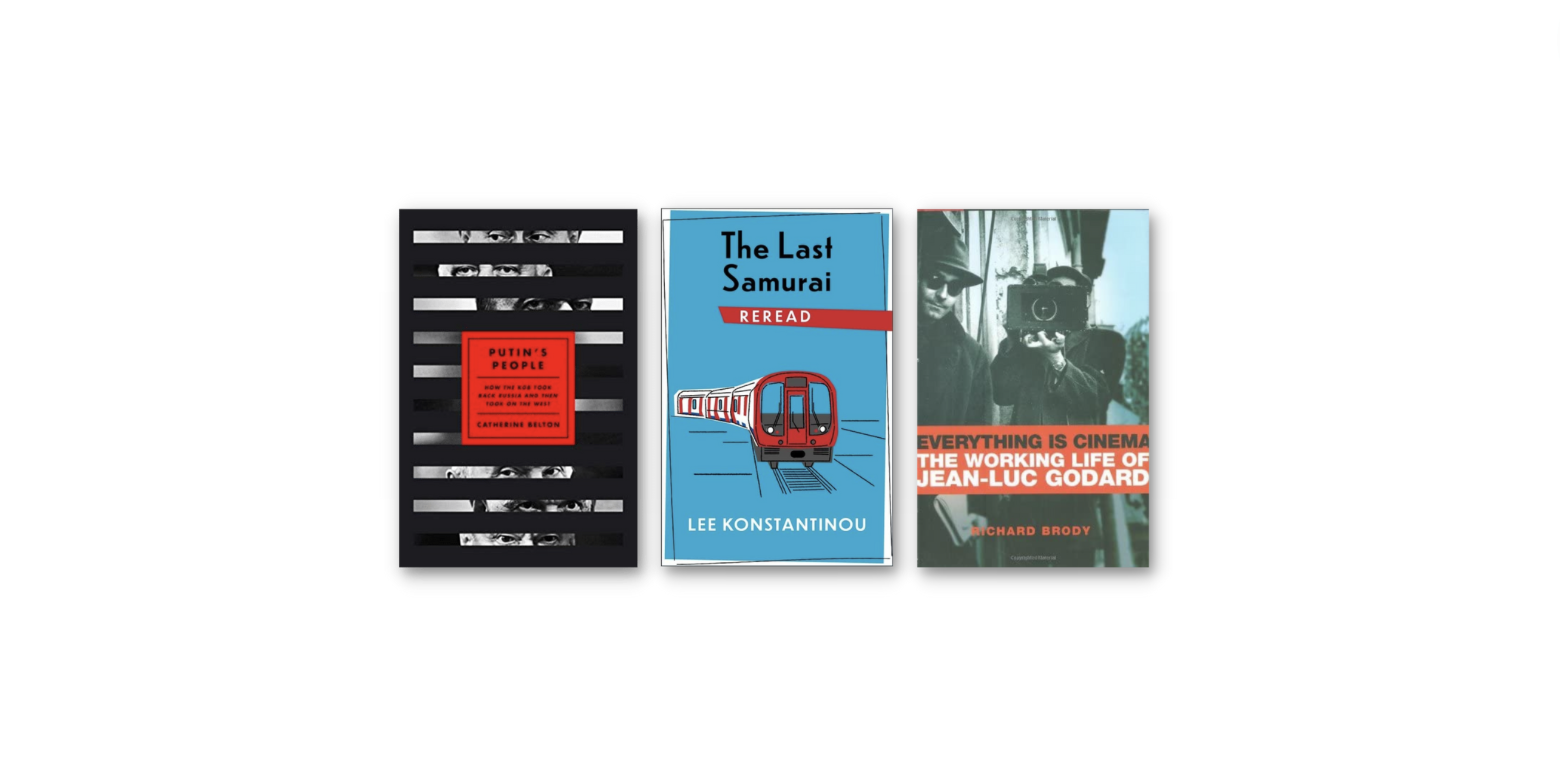 David Graeber and David Wengrow’s The Dawn of Everything: A New History of Humanity is the most intellectually exciting book I’ve read in years, and I hope its insights spread widely through reviews and allusions even among those who don’t read it. The subtitle is misleading in that it suggests a traditional history, with a chronological progression and a bunch of names and dates. The Dawn of Everything is something different: in essence, it’s an extended argument against the assumptions we make when we discuss the long sweep of history, using recent findings at the intersection of archeology and anthropology. We’ve been shining the same light on human history for centuries; Graeber and Wengrow shine a different light and show us different possibilities. Perhaps the most concise formulation of their approach is this passage from the concluding chapter:
David Graeber and David Wengrow’s The Dawn of Everything: A New History of Humanity is the most intellectually exciting book I’ve read in years, and I hope its insights spread widely through reviews and allusions even among those who don’t read it. The subtitle is misleading in that it suggests a traditional history, with a chronological progression and a bunch of names and dates. The Dawn of Everything is something different: in essence, it’s an extended argument against the assumptions we make when we discuss the long sweep of history, using recent findings at the intersection of archeology and anthropology. We’ve been shining the same light on human history for centuries; Graeber and Wengrow shine a different light and show us different possibilities. Perhaps the most concise formulation of their approach is this passage from the concluding chapter:
If something did go terribly wrong with human history—and given the current state of the world, it’s hard to deny something did—then perhaps it began to go wrong precisely when people started losing that freedom to imagine and enact other forms of social existence, to such a degree that some now feel this particular type of freedom hardly even existed, or was barely exercised, for the greater part of human history.
Their purpose is to give us back that sense of freedom, and to that end they provide many examples from the earliest evidence of social existence up to a few thousand years ago. Even those (like me) who have tried to keep up with the work done in recent years will be surprised and impressed by the way they weave it into a compelling and brilliantly written story and use it to batter at the walls of received wisdom.
Of course, such battering always provokes pushback, and reviews have tended to be respectful but (openly or subtly) dismissive. For example, Kwame Anthony Appiah‘s review-essay in the New York Review of Books spends most of its time nitpicking particular examples (almost half of it on the thought experiment involving the Wendat/Huron statesman Kandiaronk and European thinkers he may have influenced, of which the authors themselves say “No doubt it would be too much to suggest that the Enlightenment itself had its first stirrings in seventeenth-century North America,” and on their discussion of Rousseau, not exactly a vital part of the book’s argument) and generally implying Graeber and Wengrow are out of their depth. This is the kind of response genuinely new approaches always get, and I hope you will ignore the cavilers and read the book. You won’t regret it.
 A good companion piece is Nicole Eustace’s Covered with Night, a deep dive into a murder in the backwoods of Pennsylvania in 1722 that had far-reaching impacts on the relations between European settlers and Native Americans, whose impressively subtle ideas about justice and punishment are a perfect example of the kind of thing Graeber and Wengrow emphasize. The story is told with flair and might well make a good movie.
A good companion piece is Nicole Eustace’s Covered with Night, a deep dive into a murder in the backwoods of Pennsylvania in 1722 that had far-reaching impacts on the relations between European settlers and Native Americans, whose impressively subtle ideas about justice and punishment are a perfect example of the kind of thing Graeber and Wengrow emphasize. The story is told with flair and might well make a good movie.


 When I first read Helen DeWitt’s The Last Samurai almost 20 years ago, I wrote an enthusiastic review beginning “This is the best book ever written.” You might think I would have cooled down since then, but rereading it now I have the same feeling, and everyone who has read it on my recommendation has loved it (one stayed up all night because he couldn’t put it down). I don’t even know how to describe it to you other than by quoting Hilary Mantel, who called her own excellent novel A Place of Greater Safety “a book that one can live and think inside”; fortunately I don’t have to, because Columbia University Press has just published Lee Konstantinou’s The Last Samurai Reread, part of a series of “short and accessible books by scholars, writers, and critics… revisiting a favorite post-1970 novel from the vantage point of the now,” and Konstantinou does a splendid job of telling you not only what the novel is like but how it got written and what happened to it in the course of publication. I got so upset reading about what DeWitt suffered at the hands of a dictatorial copyeditor and an indifferent publisher that I had to put the book down for a while; as a retired copyeditor myself, it hit too close to home. (My own attitude was always that the corporate and academic writers I mostly dealt with had to suffer the homogenizing results of applying a style manual, but real writers could do whatever the hell they wanted as long as they were consistent about it.) Konstantinou won my heart by saying, in an early footnote, “If you haven’t read the novel, stop what you’re doing and go read it right now.” I urge you to follow his wise words!
When I first read Helen DeWitt’s The Last Samurai almost 20 years ago, I wrote an enthusiastic review beginning “This is the best book ever written.” You might think I would have cooled down since then, but rereading it now I have the same feeling, and everyone who has read it on my recommendation has loved it (one stayed up all night because he couldn’t put it down). I don’t even know how to describe it to you other than by quoting Hilary Mantel, who called her own excellent novel A Place of Greater Safety “a book that one can live and think inside”; fortunately I don’t have to, because Columbia University Press has just published Lee Konstantinou’s The Last Samurai Reread, part of a series of “short and accessible books by scholars, writers, and critics… revisiting a favorite post-1970 novel from the vantage point of the now,” and Konstantinou does a splendid job of telling you not only what the novel is like but how it got written and what happened to it in the course of publication. I got so upset reading about what DeWitt suffered at the hands of a dictatorial copyeditor and an indifferent publisher that I had to put the book down for a while; as a retired copyeditor myself, it hit too close to home. (My own attitude was always that the corporate and academic writers I mostly dealt with had to suffer the homogenizing results of applying a style manual, but real writers could do whatever the hell they wanted as long as they were consistent about it.) Konstantinou won my heart by saying, in an early footnote, “If you haven’t read the novel, stop what you’re doing and go read it right now.” I urge you to follow his wise words!


 The subject of Vladimir Putin has become dreadfully relevant to all of us this year, and I recommend Catherine Belton’s Putin’s People to anyone who wants to understand how he got where he is today. Belton is a brave and dogged reporter who’s been repeatedly sued by people upset by the facts she’s dragged to light, and she makes more sense of the bizarre series of events in the late 1990s and early 2000s that brought Putin to power and popularity than anyone else I’ve read. She backs it up with over a hundred pages of footnotes, and every time I’ve followed a thread through them it’s checked out. And a novel to read afterwards is Keith Gessen’s A Terrible Country, the best fictional description of life in Putin’s Russia I’ve seen—it’s set in 2008 and is touching, hilarious, and grim where it needs to be.
The subject of Vladimir Putin has become dreadfully relevant to all of us this year, and I recommend Catherine Belton’s Putin’s People to anyone who wants to understand how he got where he is today. Belton is a brave and dogged reporter who’s been repeatedly sued by people upset by the facts she’s dragged to light, and she makes more sense of the bizarre series of events in the late 1990s and early 2000s that brought Putin to power and popularity than anyone else I’ve read. She backs it up with over a hundred pages of footnotes, and every time I’ve followed a thread through them it’s checked out. And a novel to read afterwards is Keith Gessen’s A Terrible Country, the best fictional description of life in Putin’s Russia I’ve seen—it’s set in 2008 and is touching, hilarious, and grim where it needs to be.


 The world is overloaded with books about Paris, but Lucy Sante’s The Other Paris is a standout—if you have any love for the underside of urban life, seek it out. (It’s worth it for the illustrations alone.) If you are a fan of the great and, sadly, late director Jean-Luc Godard, two books you won’t want to miss are Colin MacCabe’s Godard: A Portrait of the Artist at Seventy and Richard Brody’s Everything Is Cinema: The Working Life of Jean-Luc Godard. The former is better on the life, with far-ranging accounts of the Godard family, its Protestant background, and French cultural life; the latter has brilliant analyses of the movies, showing me things I never realized (and I’ve been a devotee for decades). I accompanied a home retrospective of the films with a reading of both books, and it was perhaps the peak aesthetic experience of my year.
The world is overloaded with books about Paris, but Lucy Sante’s The Other Paris is a standout—if you have any love for the underside of urban life, seek it out. (It’s worth it for the illustrations alone.) If you are a fan of the great and, sadly, late director Jean-Luc Godard, two books you won’t want to miss are Colin MacCabe’s Godard: A Portrait of the Artist at Seventy and Richard Brody’s Everything Is Cinema: The Working Life of Jean-Luc Godard. The former is better on the life, with far-ranging accounts of the Godard family, its Protestant background, and French cultural life; the latter has brilliant analyses of the movies, showing me things I never realized (and I’ve been a devotee for decades). I accompanied a home retrospective of the films with a reading of both books, and it was perhaps the peak aesthetic experience of my year.

Finally, if you love poetry you should get a copy of the second (2020) edition of Ilya Bernstein’s Mandelstam—he’s improved his already deeply satisfying translations and added substantial notes that will help you understand these frequently difficult poems. In times like these, poetry is an essential vitamin.









